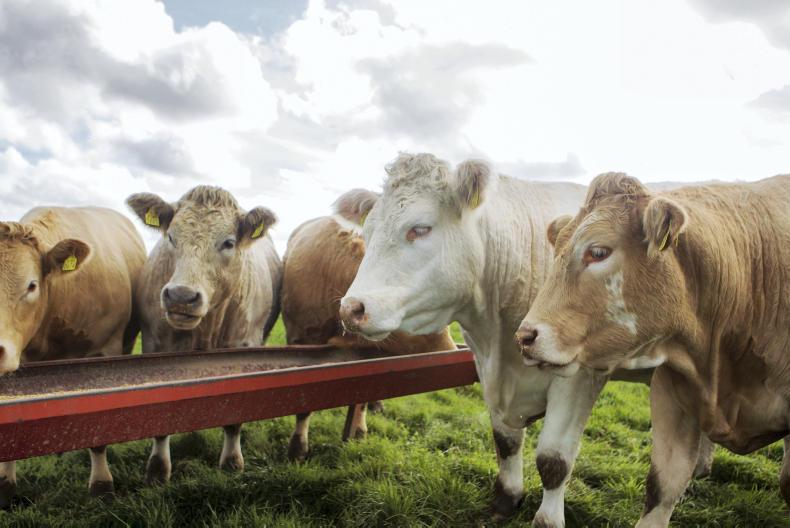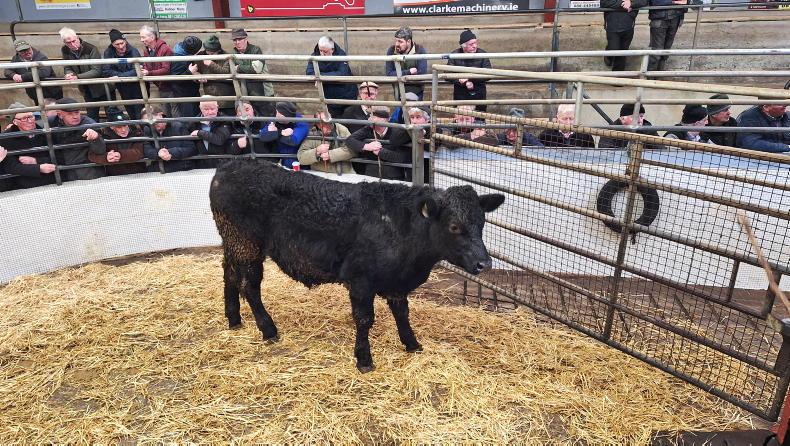There is little prospect of any uplift in beef prices over the next month, with processors reporting that finished cattle remain widely available, and order books are already filled for the first half of July.
However, there are signs emerging that the trade will turn a corner towards the end of July when tighter supplies are expected to take effect.
Forecasts compiled by the Livestock and Meat Commission (LMC) for the second half of 2019 show numbers of finished cattle are likely to be down year-on-year.
These latest figures put the number of cattle aged 18 to 24 months and destined for slaughter down 2.8% on last year. Cattle aged 12 to 18 months are 5.3% down, or approximately 13,000 head.
Both age categories will account for the main bulk of throughput of finished cattle over the next six to nine months.
The forecasts also show a 5% drop in the number of beef cattle originating from the dairy herd, which could help relieve the pressure on the manufacturing beef market, which is currently oversupplied.
Current trade
Factory quotes have slipped again this week, with plants working from a base of 322 to 328p/kg.
With delays of at least two weeks to get animals processed, negotiating above base prices is difficult.
Steers killed earlier this week are moving at 328p to 332p, with 2p/kg to 4p/kg more for prime heifers.
However, for good quality R-grading cows, the market remains relatively steady, despite a strong supply of cull cows coming forward over the last few weeks.
Brexit
According to sources in the trade, the poor prime beef market is down to a combination of factors. The uncertainty caused by Brexit has not helped, and the stockpile of beef that was accumulated before the original UK leaving date of 29 March has been gradually coming back to the market, putting more downward pressure on prices.
With the UK departure date now set for the end of October, that stockpiling process could start again later this summer. However, with tighter cattle numbers, it could help drive up prices.
In addition, reports suggest that there are plentiful supplies of Brazilian steaks in the foodservice market in London, and that wider retail sales of beef are slow. While prices are down to farmers, sources suggest that retail prices are generally unchanged, so the retailers are currently taking a bigger margin, and doing little to lift consumption.
Meanwhile, the Ulster Farmers’ Union (UFU) has written to Defra Deputy Director Guy Horsington, to make the Government aware that a package of financial support, similar to the €100m Brexit fund secured in the Republic of Ireland, “may be needed”.
Read more
Critical week for Mercosur as talks coming to conclusion
Scottish government want Brexit beef fund
There is little prospect of any uplift in beef prices over the next month, with processors reporting that finished cattle remain widely available, and order books are already filled for the first half of July.
However, there are signs emerging that the trade will turn a corner towards the end of July when tighter supplies are expected to take effect.
Forecasts compiled by the Livestock and Meat Commission (LMC) for the second half of 2019 show numbers of finished cattle are likely to be down year-on-year.
These latest figures put the number of cattle aged 18 to 24 months and destined for slaughter down 2.8% on last year. Cattle aged 12 to 18 months are 5.3% down, or approximately 13,000 head.
Both age categories will account for the main bulk of throughput of finished cattle over the next six to nine months.
The forecasts also show a 5% drop in the number of beef cattle originating from the dairy herd, which could help relieve the pressure on the manufacturing beef market, which is currently oversupplied.
Current trade
Factory quotes have slipped again this week, with plants working from a base of 322 to 328p/kg.
With delays of at least two weeks to get animals processed, negotiating above base prices is difficult.
Steers killed earlier this week are moving at 328p to 332p, with 2p/kg to 4p/kg more for prime heifers.
However, for good quality R-grading cows, the market remains relatively steady, despite a strong supply of cull cows coming forward over the last few weeks.
Brexit
According to sources in the trade, the poor prime beef market is down to a combination of factors. The uncertainty caused by Brexit has not helped, and the stockpile of beef that was accumulated before the original UK leaving date of 29 March has been gradually coming back to the market, putting more downward pressure on prices.
With the UK departure date now set for the end of October, that stockpiling process could start again later this summer. However, with tighter cattle numbers, it could help drive up prices.
In addition, reports suggest that there are plentiful supplies of Brazilian steaks in the foodservice market in London, and that wider retail sales of beef are slow. While prices are down to farmers, sources suggest that retail prices are generally unchanged, so the retailers are currently taking a bigger margin, and doing little to lift consumption.
Meanwhile, the Ulster Farmers’ Union (UFU) has written to Defra Deputy Director Guy Horsington, to make the Government aware that a package of financial support, similar to the €100m Brexit fund secured in the Republic of Ireland, “may be needed”.
Read more
Critical week for Mercosur as talks coming to conclusion
Scottish government want Brexit beef fund










SHARING OPTIONS